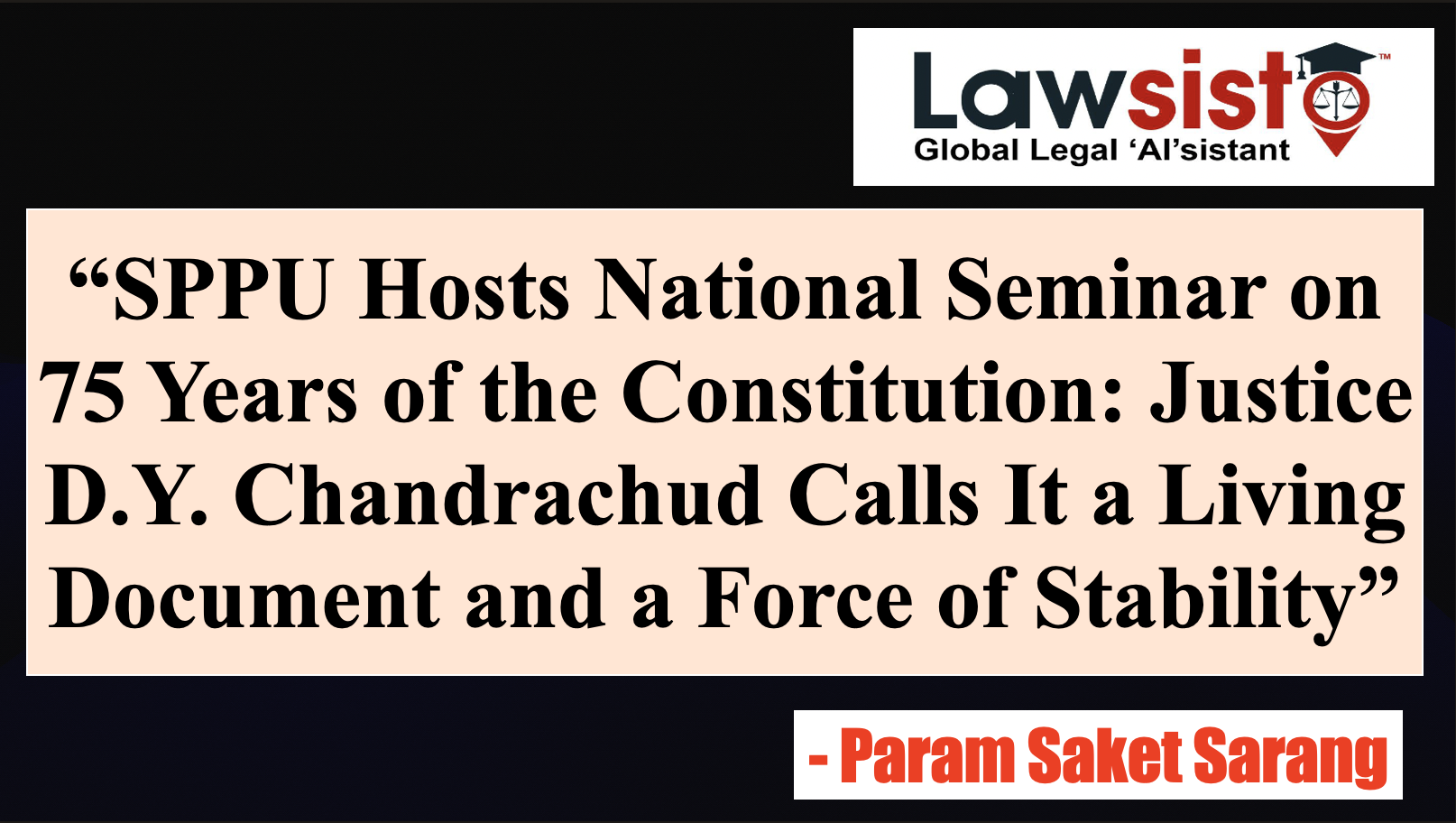Latest Articles
CENTRE CANNOT DECLARE AN ORGANISATION POLITICAL: Indian Social Action Forum v. UOI

On March 6th, 2020 a division bench of Hon’ble Supreme Court headed by HON'BLE MR. JUSTICE L. NAGESWARA RAOHON'BLE MR. JUSTICE HEMANT GUPTA recently gave a 23 page judgement in which the court held that union government cannot declare an organisation supporting public cause political and henceforth penalised it in the form of depriving it of its right to receive funds from foreign for using legitimate forms of dissent to aid a public cause.
This move comes in the background of a petition filed by The Indian Social Action Forum (INSAF) in HC which was dismissed being bereft of merit, the aggrieved then approached SC challenging certain provisions {Section 5(1) and 5(4)} of the Foreign Contribution Regulation Act (FCRA), 2010 and the Foreign Contribution (Regulation) Rules of 2011.
Under section 3(1)(f)[1] of the FCRA, organisation of political nature was prohibited from accepting and utilising foreign contribution or foreign hospitality for any activities detrimental to the national interest. The rules of deciding whether an organisation is political or not were laid down by the centre in rule 3[2] of FCRA Rules. The petitioners contended that these rules were vague and arbitrary as both the Act and the rules conferred ‘unguided and desultory powers’ to the centre to brand organisations political and to cease their access to foreign funds which here the petitioner claims, ‘can be used for public cause or welfare.’
An organisation cannot be impoverished of its right to receive foreign funds for using legitimate forms of dissent like bandh, hartal, road roko or jail ‘bharo’ to aid a public cause. The bench held that such organisations cannot come within the ambit of FCRA.
Section 5(1) of FCRA enables the Centre to decide freely whether a ostensibly non-political organisation was actually political in nature. FCRA challenged it on the ground that no guidelines are provided for exercise of such powers and called it vague. The Court said that the provision was expansive and not vague. Section 5(4) of the FCRA was also questioned but was assailed on the grounds that the authority to which a representation made by the aggrieved party is to be forwarded, has not been specified.
Rule 3 (i)[3], 3 (iv)[4] and 3 (v)[5] were also challenged as violative of the fundamental rights enshrined in Articles 14[6], 19 (1) (a)[7], 19 (1) (c)[8] and 21[9] of the Constitution and these rules are overbroad and unreasonable. The appellant also said that downsizing the right of an organisation (declaring it political) in having access to foreign funds would result in the violation of the fundamental rights guaranteed under Articles 19 (1) (a) and 19 (1) (c) of the Constitution. Appellant also submitted that political rights are an integral part of human rights and any restriction in exercise of political rights would be unconstitutional.
SC observed that an organisation, which holds up the cause of a group of citizens protesting for their rights without a political goal or objective, cannot be castigated by being declared as an organisation of a political nature. However, funding pipeline could be stopped if an organisation took recourse to these forms of protest to score a political goal and using foreign funding against the State. The SC noted that “A balance has to be drawn between the object that is sought to be achieved by the legislation and the rights of the voluntary organisations to have access to foreign funds. The purpose for which the statute prevents organisations of a political nature from receiving foreign funds is to ensure that the administration is not influenced by foreign funds. Prohibition from receiving foreign aid, directly or indirectly, by those who are involved in active politics is to ensure that the values of a sovereign democratic republic are protected. On the other hand, such of those voluntary organisations which have absolutely no connection with either party politics or active politics cannot be denied access to foreign contributions. Justifications behind the move: It is to make sure that the administration is not influenced by foreign-funded political organisations.[10]”
SC while concluding the judgement said that to save this provision from being declared as unconstitutional, we hold that it is only those organisations which have relation with active politics or participate in party politics, that are covered by Rule 3 (vi). To make it clear, such of those organisations which are not involved in active politics or party politics do not fall within the purview of Rule 3 (vi). Court also clarified that organisations used for directing foreign funds by political parties cannot escape the rigour of the Act. SC also advised union govt to follow procedure and rules strictly before depriving such organisation.
[1] Organisation of a political nature as may be specified under sub-section (1) of section 5 by the Central Government.
[2] Guidelines for declaration of an organisation to be of a political nature, not being a political party.
[3] Organisation having avowed political objectives in its Memorandum of Association or bylaws.
[4] Front or mass organisations like Students Unions, Workers’ Unions, Youth Forums and Women’s wing of a political party;
[5] organisation of farmers, workers, students, youth based on caste, community, religion, language or otherwise, which is not directly aligned to any political party, but whose objectives, as stated in the Memorandum of Association, or activities gathered through other material evidence, include steps towards advancement of political interests of such groups;
[6] Equality before law and equal protection of law.
[7] All citizens shall have the right to freedom of speech and expression;
[8] All citizens shall have the right to form associations or unions [or co-operative societies]
[9] Protection of life and personal liberty.
[10] Para 21 of the judgement.
To view judgement refer Civil Appeal No.1510 of 2020 (Arising out of SLP (C) No.33928 of 2011)
















































































































































































































































































































































































































































